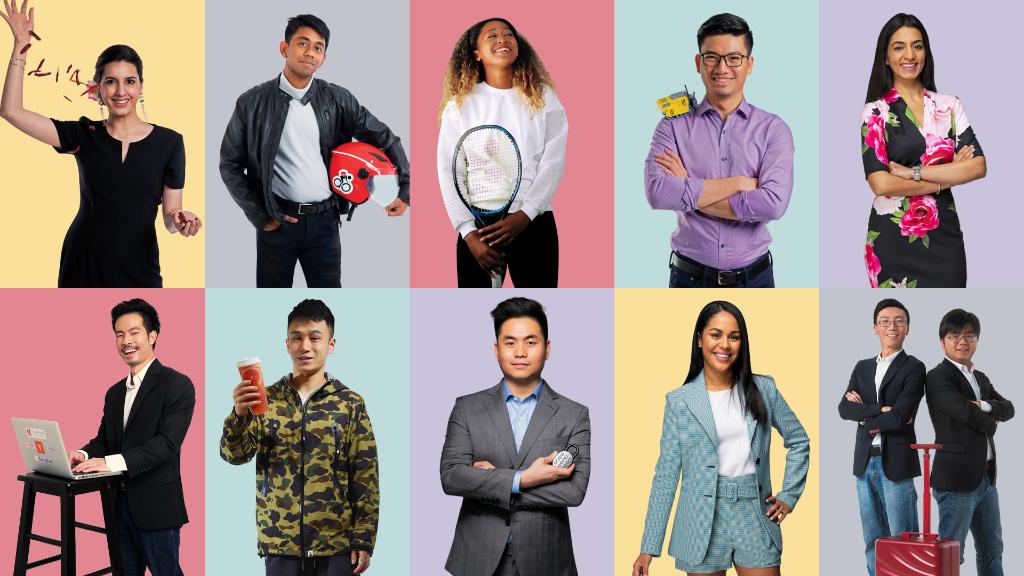Forbes announced today its fourth annual ’30 Under 30 Asia’ list, featuring 300 young disruptors, innovators and entrepreneurs across Asia, all under the age of 30. China, India and Singapore are among the top five represented countries with 61, 59 and 23 entrepreneurs respectively.
The 2019 list features a diverse set of Under 30 honorees, with 23 countries and territories represented across the Asia-Pacific region. Chosen from 2,000 entries, these 300 millennials and game changers stood out for all the right reasons.
The young Singaporean entrepreneurs on the list include Cathryn Chen, Charmain Tan, Charmaine Poh, Christel Quek, Beam Mobility Holdings, Daniel Liang, Chunfeng Wan, Erik Cheong, Fridtjof Berge, Germaine Tan, Hong Kai Yap, Jeremy Berger, Jia Yaoqi, Jian Kai Goh, Ken Chua T, Kenny Wang, Kevin Tan, Kuldeep Singh Rajput, Leonard Loo, Mohammad Danesh, Shayna Ng, The Fun Empire, The Sam Willows. The chosen achievers highlight the diverse multiethnic backdrop and ability to assimilate talent characteristic of Singapore.
For instance, Kuldeep Singh Rajput, the Founder and Chief Executive Officer of Biofourmis, a digital health start-up, is a globetrotting Indian origin engineer who settled in the Lion City. His firm has developed an AI-empowered health analytics platform based on human physiology, which uses readily available wearable biosensors, EMR data and mobile technologies to predict health exacerbation days in advance before a critical event.
Prior to moving to Singapore, the IIT-Madras graduate was a researcher at MIT Media Lab, where he was working on building diagnostic algorithms for cardiac arrhythmias and sleep apnoea in partnership with Massachusetts General Hospital.
Mohammad Danesh is the co-founder of Trancelestial Technologies, a Singapore-based space technology startup. Its product, Centauri 1.0, has the capability to use a space laser network and nanosatellites to deliver high-speed internet anywhere on Earth.
Yale classmates Alan Jiang and Deb Gangopadhyay co-founded shared mobility startup Beam in 2018. Starting with e-scooters, Beam plans to expand into e-bikes and e-mopeds.
The duo recently raised a USD6.4 million seed round from Sequoia, Founders Fund, and ZhenFund.
China was first on the list, with 61 representatives, followed closely by India with 59. With the advent of expansive and disruptive technology propagated through the internet, more and more innovators are seeing their achievements recognised.
28-year-old chef Anahita Dhondy from India, who runs New Delhi-based Parsi restaurant SodaBottleOpenerWala, promotes the various types of Indian millets, which are nutritious and inexpensive homegrown grains, in dishes in the restaurant and in recipes posted on social media.
Aditya Pisharody, formerly head of video, FilterCopy, wanted to build an ecosystem in India that supports high-quality and original content.
The 27-year-old young leader adopted a data-driven approach in growing the FilterCopy video channel and in just a year, he quadrupled the channel's reach to two million YouTube subscribers and 120 million monthly views across all platforms.
The Forbes 30 Under 30 Asia Class of 2019 includes 30 honorees in 10 categories. The categories are The Arts (Art & Style, Food & Drink); Entertainment & Sports; Finance & Venture Capital; Media, Marketing & Advertising; Retail and e-commerce; Enterprise Technology; Industry, Manufacturing & Energy; Healthcare & Science; Social Entrepreneurs and Consumer Technology.
“The Forbes 30 Under 30 Asia list this year highlights daring entrepreneurs who are building businesses mostly to solve problems in their industries. Forming 70% of the 2019 list, startup founders are using technologies like AI, Big Data and Blockchain to facilitate processes such as matching patients with potentially life-saving medical trials and providing enterprise solutions for SMEs who form the vast majority of businesses in the APAC region,” said Forbes 30 Under 30 Asia Editor, Rana Wehbe.




